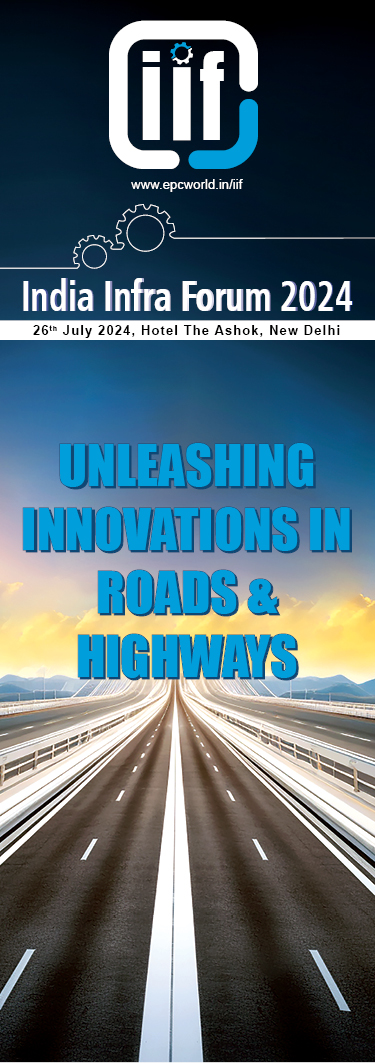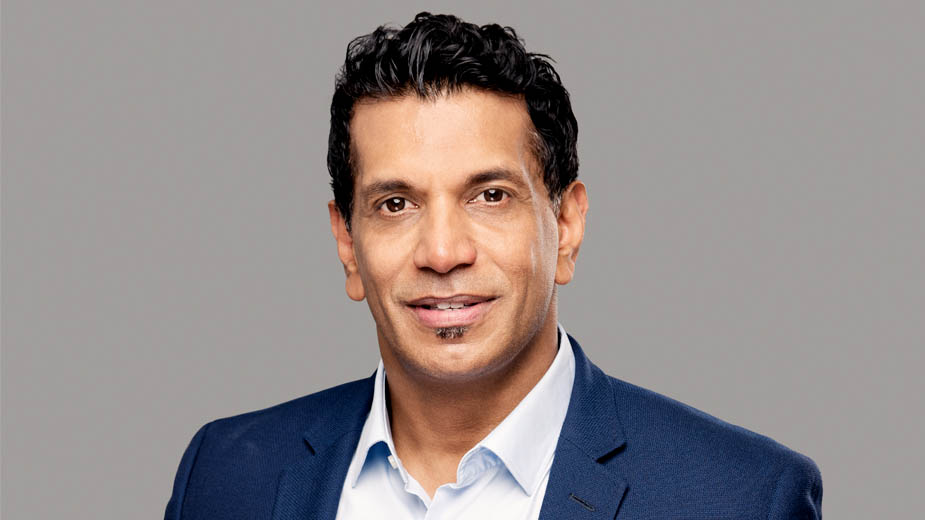With strict guidelines, the Government has allowed organisations to restart their business. What are the operational strategies you have adopted to commence your business taking into consideration safety concerns of the employees as well growth of the organisation?
In India, the Government relaxed guidelines for lockdown 2.0 in mid- April, permitting measured construction activity in non-COVID-19 hotspots. Katerra hospital project sites remained open during the pandemic with special government approvals. Post the opening; we resumed limited factory and site operations across all other locations. Katerra is an offsite construction company, so we have less labor onsite, making maintaining social-distancing more manageable. Our robust local supply chain and partners have also been critical in ensuring minimal disruption of materials. The combination of these two aspects has been vital in resuming business operations.
Our operational goal has been to safeguard our employees' health while continuing to deliver on projects. To achieve our goal, we encourage all employees who can fulfill roles remotely continue to work from home. We conduct strict daily COVID testing protocols and social distancing is followed across sites and factories for all staff and visitors. We are collaborating with partners facing labor challenges and delays in traditional construction through our factory-built offerings.
Covid-19 has highlighted the need for technology interventions across all fields, and construction is no different. The pandemic has created more demand for technology-driven construction solutions.
What are your offerings for the Affordable Housing sector in India?
The Indian real estate sector has struggled with delivering quality housing with speed. We believe that a technology-driven design and build housing product can be the right solution. Katerra has developed multiple housing products 10 - 20 Floor Apartment Buildings with 1-2 Bedroom Solutions, Co-living Apartment Buildings with Shared Facilities, Employee and Student Housing Buildings among others.
The buildings are factory built and can be delivered within 3-6 months, depending on the project size and location. The Government aims to build 20 million housing units by 2022 to support 37+ million families in urban India that are currently living in informal housing. COVID-19 has also highlighted the need for affordable rental housing units for migrant workers in urban cities. A technology approach combining design for manufacturing and assembly (DfMA) and offsite construction, will be critical in delivering a quality solution.
Offsite factory manufacturing these buildings will deliver them 50% faster, bring material savings of over 30%, reduce water consumption by 60%, and ensure minimal dust and pollution within communities. Globally we have seen many countries -China, Singapore, UAE, among others, use these methods to deliver large cities efficiently. Technology-driven solutions are the need of the hour in India.
India being a price sensitive nation and your products being niche how is the market for your products in India? How much market share do you command in India?
India is indeed a price-sensitive market. Our clients today are global multinationals like Infosys, Microsoft, Bosch, Lulu Retail, Embassy, etc, who demand both quality and value, and we have delivered on both these aspects. Of course, catering to these companies is not the same as the affordable sector; however, we can bring more value in cost if we bring in scale.
Look at the electronic market; there was a time when mobile phones or televisions were unaffordable, but technology advancements, scale, and mass production is making these products accessible to all. Same with the car industry. We simply need a strong partnership between Government, Developers, and AEC companies to deliver this solution.
A case in point is the Indira Gandhi Canteen project Katerra delivered for BBMP and the Karnataka Government. We built over 400 affordable canteens in 6 months across Karnataka that is today providing millions of meals. A commitment by all stakeholders is critical for delivering a viable solution for India's housing crisis.
As a 5-year old start-up, Katerra has delivered multiple hospitals, office, residential, and retail -buildings. The construction industry is the second largest sector in India, and we believe there is a lot of potential for a company like Katerra to grow.
How are you integrating Sustainability in your products?
Several global studies have highlighted that technology-driven offsite construction and modular buildings are far more sustainable than traditional construction. The use of prefabricated factory building components can reduce water usage by 60% and minimize material waste by 30%. It also protects urban communities from traffic congestion, dust pollution, and noise nuisance - since no construction is done onsite, only the installation of finished components. Material savings in offsite construction are also achieved by reducing excessive formwork, bracing, packaging, and debris, which are often seen accumulating in cast-in-situ sites.
Katerra is bringing these global advantages to India through our offsite mega factories. Additionally, we have invested considerably in R&D to improve building design. Most traditional buildings in India are not designed to be sustainable through their lifecycle. Aesthetics are often given more importance than the environment.
Katerra is committed to environmental stewardship. We understand construction has a high impact on the environment. In India, Katerra is designing more sustainable buildings that are material-efficient and offer better durability and strength.
For example, conventionally built structures need more columns and beams at regular intervals for support and strength, resulting in a higher carbon footprint. At Katerra, we use prestressed concrete elements in construction projects allowing for large unsupported spans. Prestressed concrete floors can span 16m without intermediate supports. Prestressed hollow core planks bring in resource-saving of over 50% less concrete and 75% less steel usage versus solid concrete floor slabs.
Energy conservation is another critical advantage of Katerra building components. We combine thermal insulation in elements, equating to deliver long-term energy savings. Katerra also recycles all waste material resulting in less material being sent to landfills or dumped into the environment.
What are the skill nurturing programs you conduct?
The construction sector traditionally has relied on low-paying unskilled labor. At Katerra, we are converting these low paying unskilled tasks to safer, better-paying factory roles. All our prefabricated building components are factory manufactured using advanced machinery. Employees receive rigorous on the job training to use new machinery and technology. In addition to that, Katerra also plans to set up vocational training centers for upskilling and technical training.
Tell us about your manufacturing plants and R&D in India?
Katerra is following a two-pronged approach to cater to the Indian market. Firstly, we are building mega-factories across South, West, and North India, which will be our main manufacturing hubs to produce finished building elements. Secondly, we have mobile factories across India to cater to projects up to 2 million sq ft and above. Our mobile factories are set-up onsite, and once a project is delivered, the factory is relocated to the next project.
We have a mega factory in Krishnagiri near Bangalore, and two more mega factories under construction in Hyderabad and Bombay set to open by the end of 2020. We also have mobile factories in Lucknow, Mumbai, and Hyderabad servicing existing projects.
Our research focuses on designing and building products for the residential, commercial, and healthcare sectors in India. All these building products use Katerra offsite factory-built components reducing time by over 75%, material use by 50%, and increasing building lifespan and efficiency by 35-40%.
Some of our products are a 200-bed permanent hospital built in 2 weeks, a 10-floor residential complex constructed in 3 months, an office building delivering 20% more rentable space, a showroom-experience center built-in 48 hours and 3D multipurpose rooms and bathrooms for internal and external environments built-in 48 hours. Globally we are investing over $18 million on R&D a first for the construction industry.
What are your growth plans for Katerra in India for the next three years? Is there a manufacturing plant or office or new innovation in the offering?
In the next three years, our focus is to strengthen our presence in South India while expanding our operations in the west and north. As mentioned earlier, we have one full-fledged offsite factory at Krishnagiri near Bangalore, and we are building two more factories in Hyderabad and Mumbai, respectively. We also have a factory planned for Delhi-NCR for 2021. We also expect to have 7-8 onsite factories across different locations based on project needs.
The plan for Katerra is to have five mega plants in the country within the next five years and 15 to 20 smaller onsite plants to be able to address pan India needs. We will also introduce a suite of design and build product in the market that can be delivered 70% faster than currently available. I have mentioned some of these products in healthcare, residential, and commercial earlier. We also in the R&D phase for a warehouse and data-center product.
What are your plans to increase your market share?
COVID-19 has been a powerful catalyst in highlighting the necessity to transform the construction sector in our country. Construction technology has gained critical importance. We believe the industry has tremendous potential, and India will be a significant market for Katerra. We have invested about Rs. 250 million-plus in the country and plan to continue investing in the country both through factories and R&D in the coming years. Our goal is to deliver technology and design-driven buildings factory manufactured - better, faster, and more sustainably than the traditional choices available in the market. Our vision is to provide better buildings, smarter communities, for everyone.






